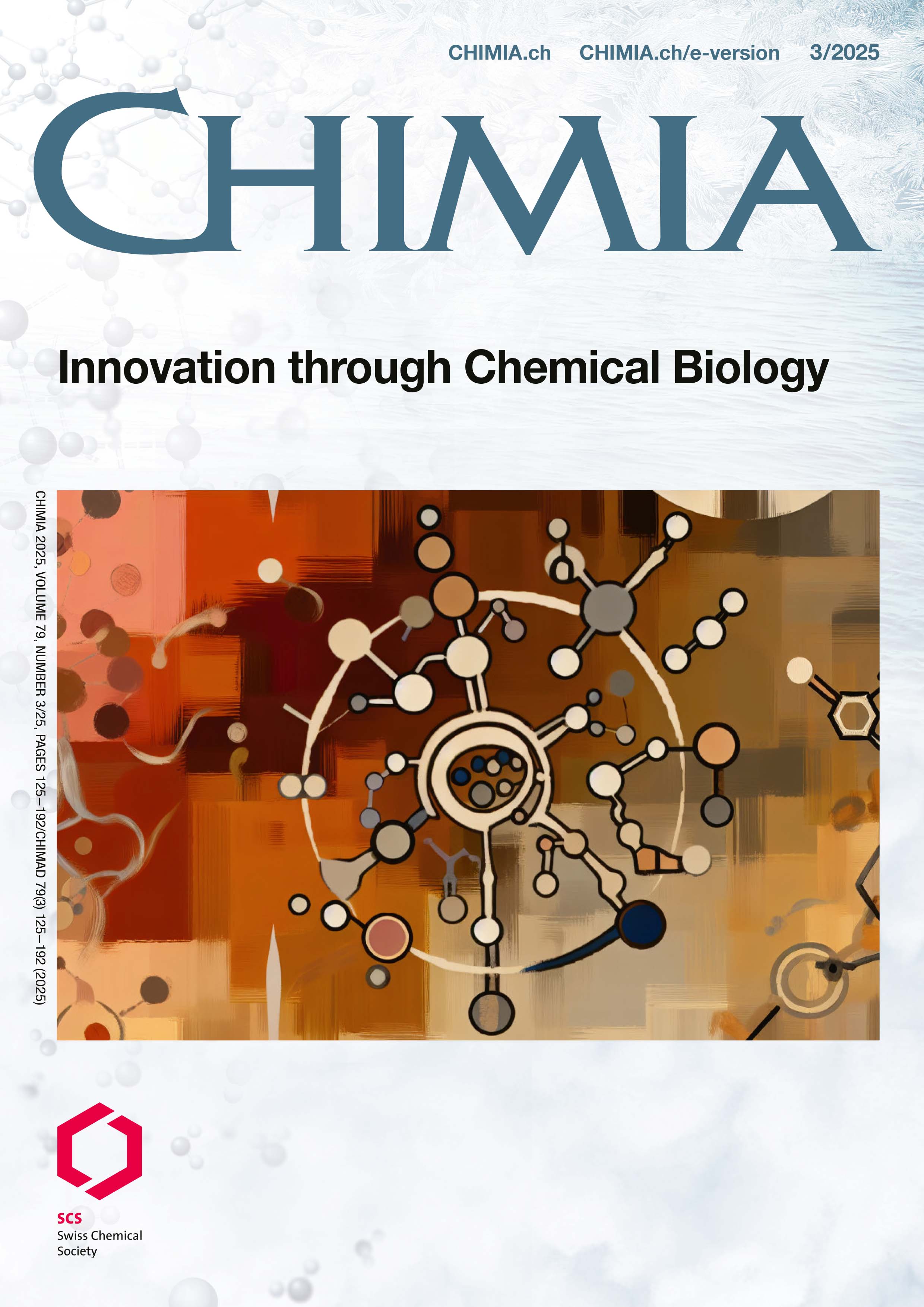Oligonucleotide-based PROTACs to Degrade RNA- and DNA-Binding Proteins
DOI:
https://doi.org/10.2533/chimia.2025.167PMID:
40156562Keywords:
DNA-binding proteins, Oligonucleotide-based PROTACs, RNA-binding proteins, RNA-PROTAC, Targeted protein degradationAbstract
Proteolysis targeting chimeras (PROTACs) are heterobifunctional molecules that sequester the endogenous protein degradation machinery of cells to induce degradation of targeted proteins. By bringing a target protein and a ubiquitin E3 ligase into close proximity, ubiquitin monomers can be transferred onto surface lysines of the protein, which is subsequently degraded by the proteasome. The functions of RNA- and DNA-binding proteins have been especially hard to modulate with small molecules. However, oligonucleotides that bind RNA- or DNA-binding proteins can be turned into oligonucleotide-based PROTACs to direct ubiquitination and degradation of these proteins. Here we summarize the current state of the field of oligonucleotide-based PROTACs that target RNA- or DNA-binding proteins.
Funding data
-
Schweizerischer Nationalfonds zur Förderung der Wissenschaftlichen Forschung
Grant numbers 51NF40-205601
Downloads
Published
Issue
Section
License
Copyright (c) 2025 Céline N. Weller, Jonathan Hall

This work is licensed under a Creative Commons Attribution 4.0 International License.







